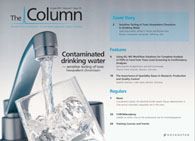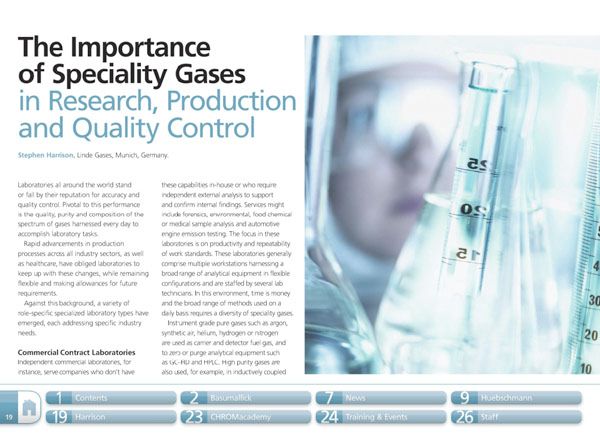The Importance of Speciality Gases in Research, Production and Quality Control
Laboratories all around the world stand or fall by their reputation for accuracy and quality control.
Laboratories all around the world stand or fall by their reputation for accuracy and quality control. Pivotal to this performance is the quality, purity and composition of the spectrum of gases harnessed every day to accomplish laboratory tasks.
Rapid advancements in production processes across all industry sectors, as well as healthcare, have obliged laboratories to keep up with these changes, while remaining flexible and making allowances for future requirements.
Against this background, a variety of role‑specific specialized laboratory types have emerged, each addressing specific industry needs.

Study Examines Impact of Zwitterionic Liquid Structures on Volatile Carboxylic Acid Separation in GC
March 28th 2025Iowa State University researchers evaluated imidazolium-based ZILs with sulfonate and triflimide anions to understand the influence of ZILs’ chemical structures on polar analyte separation.












